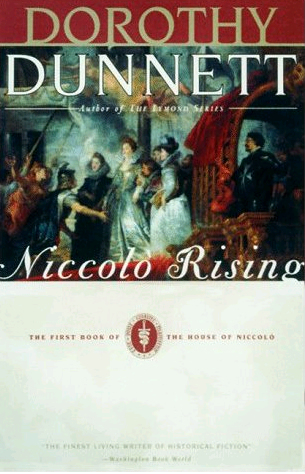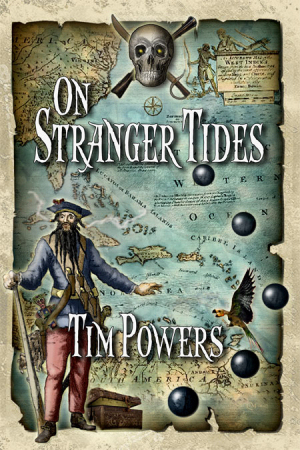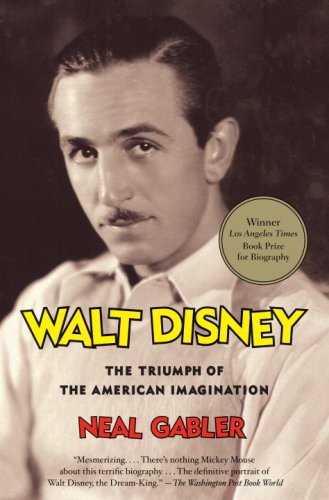
Historical fiction isn’t all that different from fantasy: It’s all about the world building, except you use one of the real worlds instead of building a new one. Historical novels can perhaps skip the 20 pages explaining what, where and why France is, but they have to describe their world in detail all the same: The context is half the story, half the appeal.
The context in Niccoló Rising by Dorothy Dunnett is Flanders and Italy in the 15th century, a context that deserves a protagonist who could walk out of a renaissance painting. One of those whose ambitious eyes shine out across the centuries, as if they’re asserting a right to run our world as well.
Niccoló will eventually end up in a painting like that, no doubt, but in this first of many novels in the House of Niccoló series he’s just a clever apprentice, who manouvers his way into becoming some sort of merchant/mercenary/courier/spy.
I enjoyed the novel a lot, partly because of how vividly it paints mid-15th century Europe. But the more I think about it, the less I want to read the followups. Niccoló is too perfect. Despite being maybe 20, he’s absolutely brilliant, knows everything that happens in any court or banking house in Europe, can trick anyone, pull any string to make anything happen, and is a fantastic lover.
The novel says he’s flawed, but I see no sign of it. I see a wish-fulfillment fantasy. Which can be fun, but not fun enough to last eight long novels.








